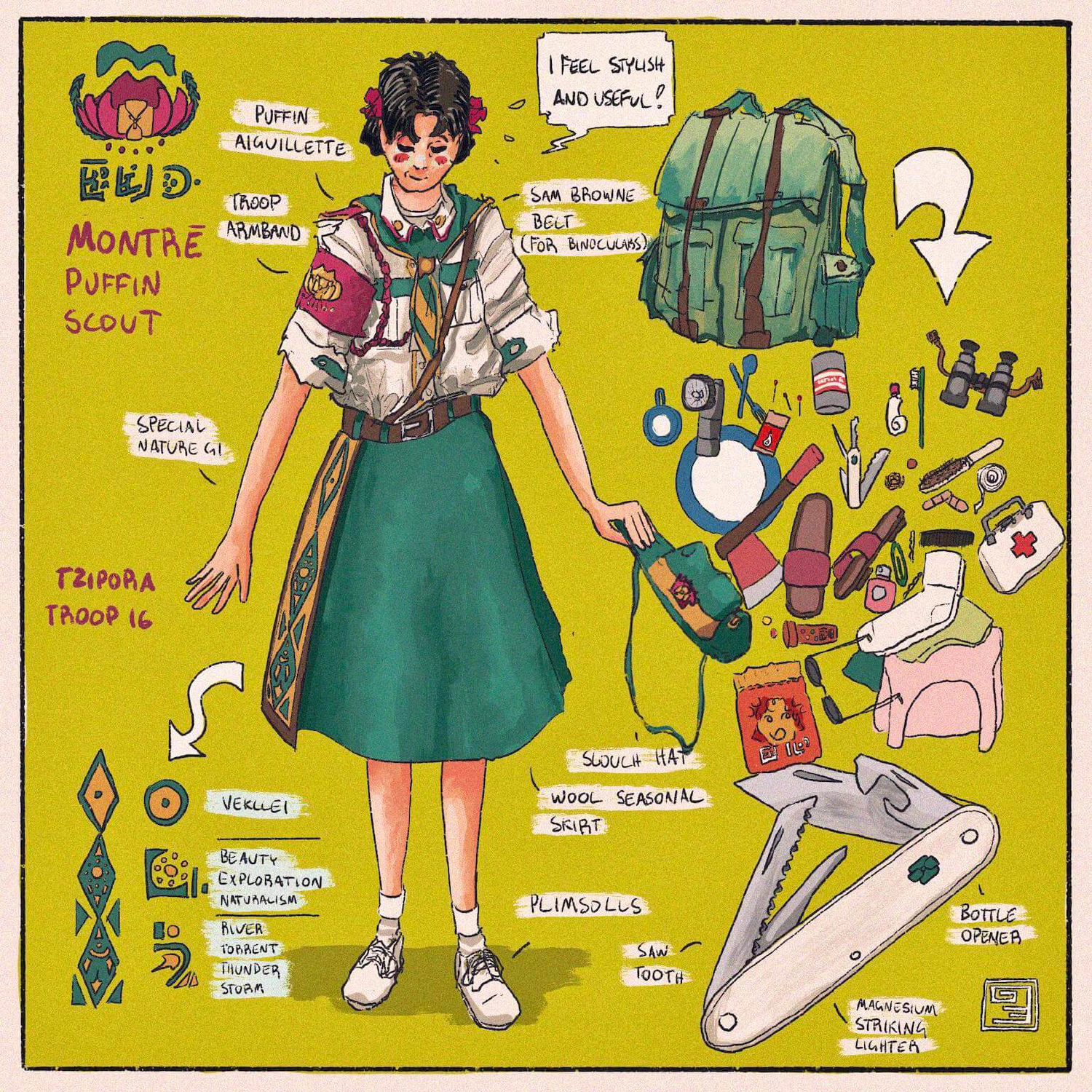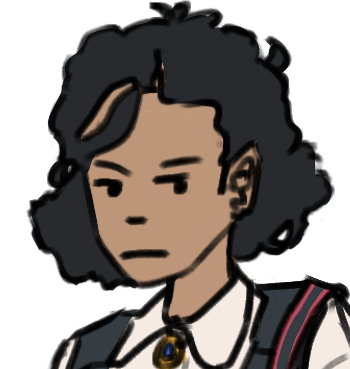NEW Story: Sunday Morning
Puffin Scouts

This article is not part of Vekllei canon. It may be old, obsolete or just a bit of fun.
MoonMonth will return tomorrow. As an interlude…
In Winter 2064, the changes made to the constitution of the Boy Scouts of America (BSA) would be felt around the scouting world. By this point it was pretty clear that the globe had entered a “helter skelter” decline towards tragedy. The emerging fission technologies were too slow and expensive to mass produce, and the fossil fuels that lighted homes around the world were starting to run dry.
It wasn’t just a crisis of resources — there had been Taiwan, and the Commonwealth Wars, and the disaster of decolonisation. There was a long history of decline, paved in blood, and it was pretty clear that things were going to get worse before they got better. If they got better at all.
In Winter 2064, several clauses were introduced into BSA recruitment that would reposition the organisation as a fundamentally patriotic youth org, and would seek to raise a generation of the kinds of boys and girls America would need in the coming decades. They would have to be resourceful, capable and most of all, dutiful adults.
Chinese-born children were thereafter denied entry altogether, and those of immigrant heritage would be subject to allegiance testing. Over the course of a week and several indiscreet searches of the family political history, the BSA recruitment board would weed out communists and suspected agitators.
For an organisation of the prestige and heritage of the BSA to implement overt racial vetting meant that political repression was normalised — so-called “national orthodoxy” — in youth orgs around the world.
In Vekllei the largest youth organisations include
- The National Blossoms
- The Puffin Scouts
- The Landscape Bureau
The National Blossoms concern themselves largely with traditional landcare and stewardship of national parks, and the Puffin Scouts are focussed on camping and friendship. The Landscape Bureau includes people of all ages, not just youth, and form part of Vekllei’s Parks and Heritage organisation (in which careers can be forged).
Although the constitutional reforms of the BSA, and subsequent militarisation of many European scouting organisations (as well as several so-called Western pockets of Asia), had little obvious effect on Vekllei’s youth orgs, subtle changes were made to better distinguish her domestic scouts from the rise of child fascism across the world. Parts of the uniform were demilitarised, and girls were allowed to wear skirts for the first time. The colours of the Puffin Scouts shifted from red and white, which is associated with the country as an identity, to gold and green, which better translate to “wilderness” in Vekllei Semaphore. The political curriculum of the youth orgs (covering Upen, the Bureau System and the modern Vekllei city-state) was shifted to eighteen and above.
It’s a scary time to be alive, but the children of Vekllei’s youth orgs are largely unaware of it outside of nuclear drills. Young scouts — ranked as Pufflings in the Puffin Scouts — spend their childhood years learning to tie knots and make friends, where the children of America are learning to shoot a rifle and memorise the dual constitutions; that of the Boy Scouts, and that of America.
In the picture above, you’ll notice a guide to decoding a simple Vekllei Gi, a type of ceremonial quarter-pleat, and a collection of items a Puffin Scout is likely to have on their person.
